Global Warming and the Great Unraveling
Witnessing the collapse of normalcy as political instability, global crises, and environmental disasters accelerate.
Below is a chart comparing our current projected rate of global warming with previous mass extinction events.
At first glance, it seems we’re completely doomed. But if you look closer, you’ll realize that we are indeed doomed as a civilization, but maybe we’re not finished as a species. Why do I say that? Because there’s a slim chance for that red line to start bending in the coming decades and centuries, potentially opening a narrow window for future humans, and other species, to move into the next phase of the Anthropocene.
How can we bend?
It’s time we start being brutally honest about where we’re at and where we’re headed.
Since the 1970s, scientists have been sounding the alarm about a fundamental truth: infinite growth on a finite planet is impossible12. Ignoring this reality has brought us to the edge, with disastrous consequences now unfolding across our societies, the biosphere, and the climate system.
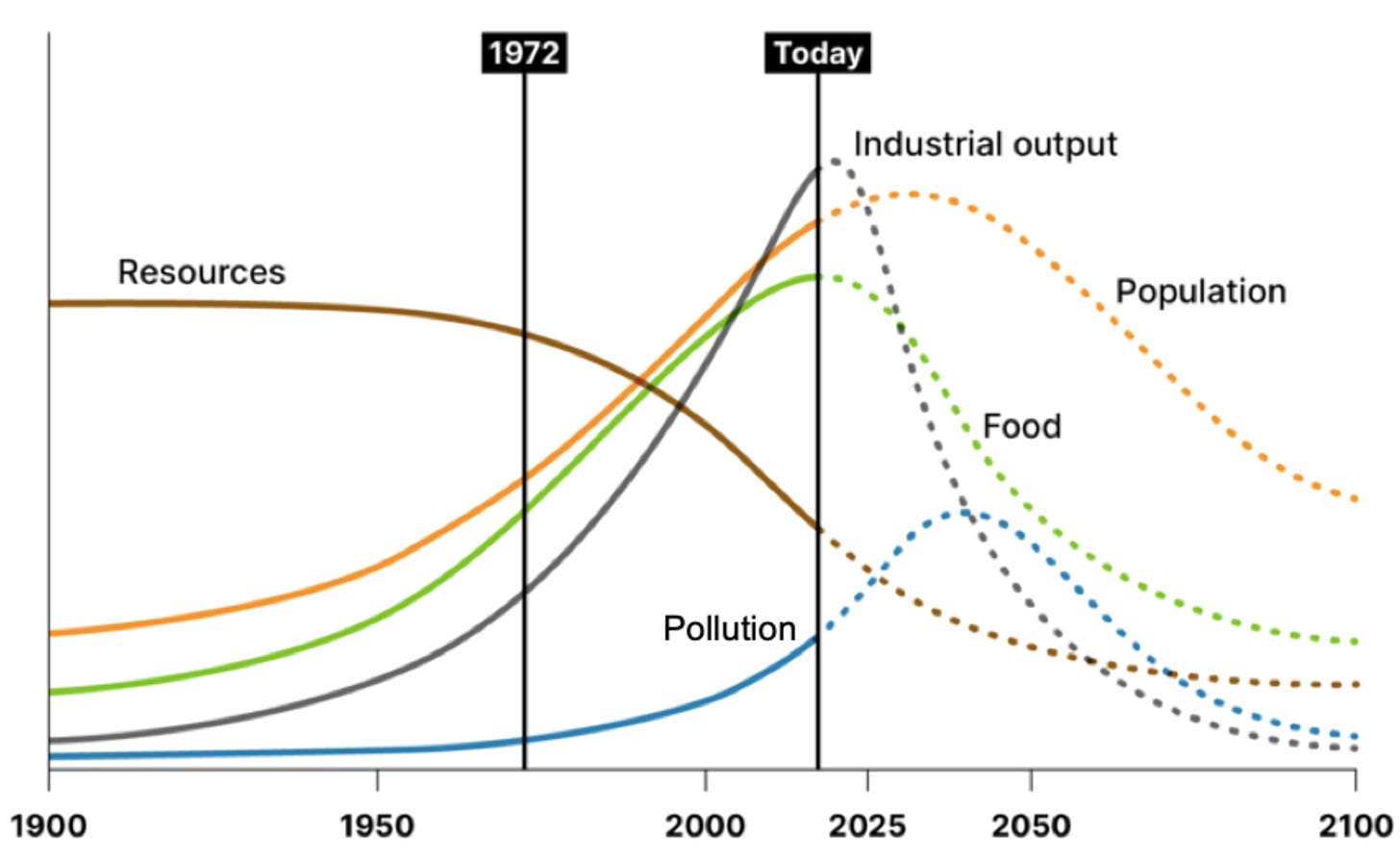
The evidence is clear and staring us in the face. But even with all the evidence piling up, talking about decline is still off the table in most circles. People write it off as irrational pessimism.
The more obvious the crisis becomes, the less people seem able to imagine a different way of living. Instead of scaling back our unsustainable consumption, reducing energy demands, and focusing on conservation, we keep doubling down on growth as if that’s the only way forward.
Even the environmental movement has been hijacked by this growth delusion. There’s a push to massively expand renewable energy, not so we can live within our ecological limits, but to maintain our unsustainable high-consumption lifestyles.
We’re burning through precious and finite resources building millions3 of EV’s (14 million in 2023) to keep car culture alive. We’re covering landscapes with solar panels and wind turbines—made from plastic, steel, copper, concrete, aluminum and mined minerals—to maintain our energy-hungry lifestyles. Mining for some key materials would have to increase 40-fold to meet the demands of this so-called transition. These minerals are not evenly spread out across nations4, far from it, think about the geopolitical implications in the next 10-20 years. We don’t even have all the minerals to do round one5. None of this is grounded in ecological reality, it’s nowhere near sustainable, and it certainly won’t save us from the mess we’re in. I’m not saying don’t build any, but we need to stop pretending as if it’s going to save us.
If what I just said sounds crazy to you, I get it. There was a time when I would’ve dismissed anyone making these claims too. But maybe you should check out my article on the end of growth6, which is based on biophysical reality and why infinite growth is impossible.
Believing in endless growth isn’t rooted in facts or reality, it’s just a belief. It’s faith, based on the assumption that what’s been happening for the last 200-300 years will continue forever. This blind faith comes from the fact that, for the last century or two, human life has steadily improved, wealth has grown, standards of living have risen. But have you ever stopped to think about why that happened?
Political reality
When it comes to our overshoot crisis, denial is everywhere, not because the science is uncertain, but because the reality is too uncomfortable and inconvenient. Rather than face up to the severity of the crisis, many choose to label anyone who speaks bluntly about it as an alarmist or a doomer.
As far as I’m aware, not a single world leader is willing to face the harsh truth, but even worse, the general public is mostly not willing to accept the uncomfortable steps that would need to be taken. Instead, we're seeing people cling to fascist ideas and delusional fantasies that offer false hope, all to maintain their unsustainable lifestyles.
Think about it. If a world leader actually tried to implement the policies that are needed, they would be kicked out before they could even get started, and it’s not difficult to understand why. The only way to tackle this would be to slash consumption across the board, several industries would need to be effectively banned, completely tanking the economy. A nonstarter. It would lead to mass unemployment, riots on the streets and societal collapse. A terrible outcome. No politician will ever do that voluntarily.
But that’s not all, this is not a problem any one country can fix on its own. It has to be a global effort. Every country would need to be on the same page. Let’s be real, there is zero chance of that happening. Just look at the latest COP meetings, they’re basically proof that global consensus is a pipe dream.
And what do the people want? These were the most important issues for voters in the US, and let me tell you, it’s more or less the same in every other country. I don’t see this changing.
So we won’t solve this politically, there is no realistic path for that, and people would vote against it. Most likely, things will keep piling up, the disconnect from reality will get worse. We will keep doubling down on denial, distractions, and self-destruction. The superstructures built on endless growth and exploitation will keep pushing us further into chaos until they finally collapse under their own weight.
The only way forward is through collapse, where the illusions we hold on to are shattered, forcing us to face the harsh reality.
It’s already happening
If you've been paying attention, you’ve probably noticed things have been getting weird and worse for quite some time, and it’s happening fast now.
Brexit and Trump were the warning shots that the systems we’ve built aren’t working and are falling apart. The COVID-19 pandemic exposed how fragile our global supply chain really is, with shortages in many essential goods. Governments fumbled their responses and made decisions that left people questioning everything.
Politics have turned into a complete farce, with people more polarized and disillusioned than ever, not just in the US, but across the entire world. The UK can’t seem keep a prime minister in office longer than a year. France and Germany are stuck in a loop of political instability, constantly calling new elections as extremist parties rise and fight for control. COP meetings are a joke. Billionaires are building doomsday bunkers7. Israel is committing genocide in Gaza. Ukraine is caught in a war with no end in sight.
Our leaders and economies are chasing growth by piling on more debt while inflation continues to spiral. Growth won’t just stop, it’s headed for a cliff. Populations in developed countries are already shrinking, quite rapidly in Japan, South Korea, and China, leading to increased dependency ratios and decreased aggregate demand (consumption). This trend alone, would trigger a breakdown of the economic system within the next two to three decades, depending on the severity of the demographic decline.8.
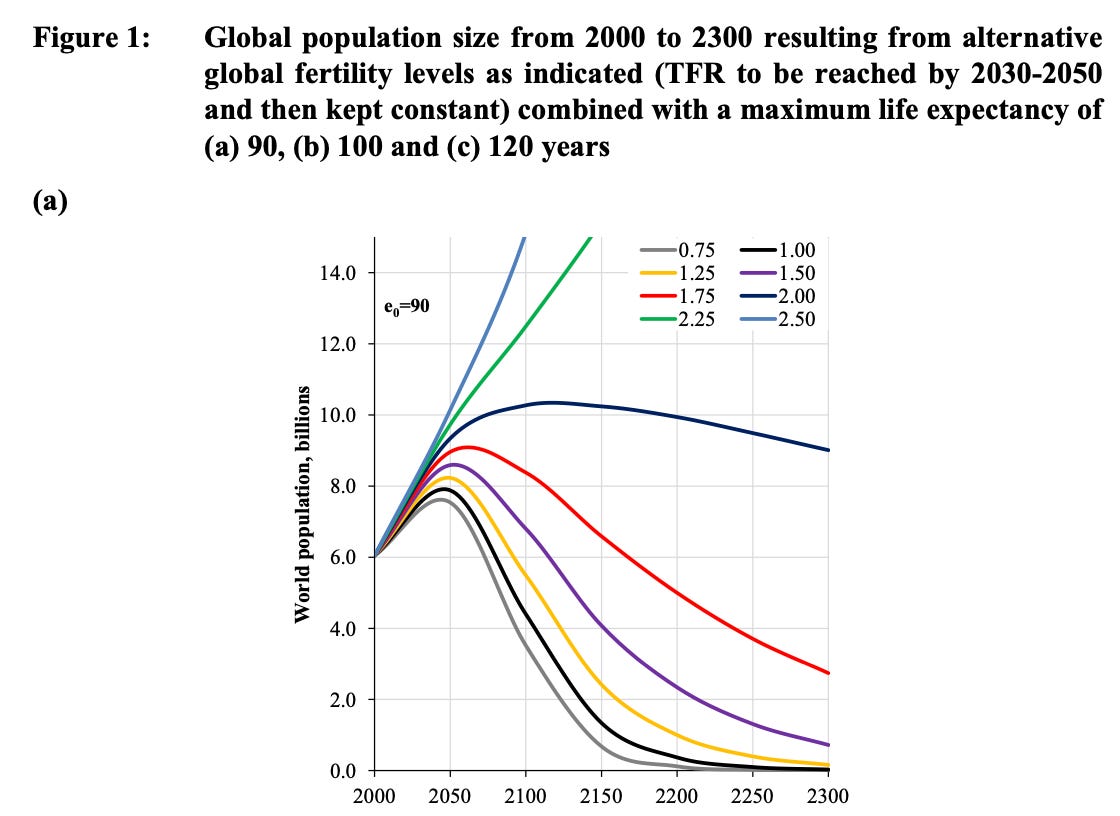
On top of that, climate change is accelerating, with 2024 seeing record-breaking temperatures, failed crops, disastrous weather events, wildfires, and floods. FEMA's administrator declared that "a major disaster every two days is the new normal." But this isn't the new normal, it's a temporary blip on our way to even worse crises.
And that’s just the tip of the iceberg.
The division is getting worse, and collaboration between political parties and between nations has become impossible. There’s no going back to “normal”.
The cracks are everywhere. Things aren’t working.
Seriously, when was the last time we heard any good news?
The unraveling of industrial civilization
Some countries have already largely fallen apart, like Palestine, Yemen, Sudan, Cuba, Myanmar, Syria, and Venezuela. Others are teetering on the edge, like Pakistan, South Africa, Argentina, and Ukraine. Meanwhile, places like the US, UK, France, and Germany are clearly in economic decline, politically broken and experiencing riots.
So, it seems the party is over, and this civilization has an expiration date. The end of industrial civilization isn’t going to look like the ones you read about in history books, but there will be some familiar patterns in how society crumbles. All empires and civilizations have fallen, but this time, the stakes are much higher.
The climate is changing faster than anything Earth has seen since the worst mass extinctions, and our civilization's total dependence on technology and cheap energy only makes us more vulnerable. Add to that several nuclear-armed nations, armed to the teeth with advanced military tech, ready to fight over what’s left of the planet’s resources in the coming decades.
Why do I think this could bend the curve? There’s no reason to believe that emissions and deforestation would stop just because some countries fall apart. Most countries will definitely keep burning through their fossil fuel reserves, while countries without access to fossil fuels will likely burn more biomass, cutting down forests and releasing more CO₂. However, in the long run, as societies break down, populations decline, institutions fail, and overall consumption declines, emissions will drop significantly.
I won’t speculate too much about how things will unravel, because the decline won’t hit everyone equally or at the same time, and it will probably be a very long process. Several decades or a century. But I’ll say a few things.
Unlike past collapses, where people could fall back on smaller, self-sustaining systems, we’re living in a hyper-connected world, with global supply chains and fragile infrastructure, which leaves almost no room for adaptability. Back then, people knew how to grow food and take care of their basic needs. This time, we’re all specialized in our respective fields, and completely unprepared.
In my view, one of the biggest issues is the culture of individualism. We’ve been sold this idea that we can do everything on our own, that we’re somehow “self-sufficient”. But that couldn’t be further from the truth, and it’s a dangerous illusion and it’s built on the assumption that money can solve everything.
We’ve outsourced our basic needs to a global supply chain, thinking it’ll always keep running smoothly. When the systems we rely on crumble, people will panic. Water, food, and healthcare, things most take for granted, will be disrupted.
In addition to that, we’ve outsourced our memory and knowledge to the internet, assuming it’ll always be there when we need it. The internet will eventually go down, and it could happen quite suddenly in some places. People will be left helpless, scrambling for resources with no clue how to get by.
I hope the collapse unfolds slowly enough for people to learn the skills they’ll need. I don’t think most will act until it hits them personally.
Climate chaos – A bottleneck
As I’ve laid out in this article, we are in civilizational decline, and will experience a great simplification in the coming decades, driven by our full-blown overshoot9, and I believe that this simplification will ultimately bend the curve.
I also believe we’re guaranteed to pass a few tipping points, as I laid out in my article on climate change10, and this will most likely bring us up to 3-5°C eventually. And it seems like 77% of climate experts at the IPCC believe we will see a rise of at least 2.5°C by the end of this century11, probably more.
At the Potsdam Institute for Climate Impact Research some researches believe we will collapse before reaching 3°C, as Stefan Rahmstorf reveals in this interview.
Paleocene-Eocene Thermal Maximum (PETM)
Earth has been through five major mass extinction events and several rapid warming periods, and most of them had one thing in common: a huge amount of CO₂ and other greenhouse gases getting dumped into the atmosphere. How? From massive volcanic eruptions.
Then there’s another unlikely way it could happen. A species digging up millions of years worth of buried carbon and torching it, releasing an insane amount of CO₂ into the atmosphere.
Let’s go back to that first chart.
There are studies suggesting that a PETM-like scenario is the best-case outcome of our current trajectory of global warming12, so it’s worth digging into what that looked like.
PETM took place 56 million years and the scientific consensus is that it was triggered by massive volcanic activity in the North Atlantic, releasing a total of around 10,000 gigatons of CO₂ over several thousand years, with an average rate of 1.7-2.0 gigatons CO₂ per year13, much slower than our current pace. We don’t know if this was released at a steady pace, or in several large pulses.
The planet was ice free and the Drake Passage (Panama) was still open, meaning ocean currents flowed differently, impacting the climate. Average temperatures are believed to have increased by 5-8°C, with this warming period lasting for about 200,000 years, before returning back to previous levels.14.
Now let’s look at today. We’ve released 2,500 gigatons of CO₂ in total since the industrial revolution, only 25% of the PETM total. That is one massive carbon pulse. Our current pace is still around 40 gigatons of CO₂ per year, more than 15 times faster than PETM average.
How did life cope with the extreme warming during the PETM?
Oceans: between 30-50% of key microscopic marine organisms went extinct due ocean acidification triggered. This caused disruption in marine ecosystems, especially in the deep ocean15
Terrestrial animals seem to have mostly adapted. This study found that some mammals shrank by 30%16
Plants: notable disruption in forest ecosystems, but no catastrophic extinctions. Plants migrated in response to changing climates, but overall, the diversity of plant life adapted1718
Despite a lot of research on the PETM, we still don’t have clear data on the extinction rates of terrestrial animals. That’s probably a good thing. It suggests that while some species may have struggled with the rapid warming, there were no massive die-offs like in the oceans. Instead, many species likely adapted or migrated in response to changing conditions.
A 30% reduction in size suggests a competitive advantage for smaller individuals, allowing them to survive and reproduce over time. What could that mean? Smaller creatures have lower metabolic rates and require less energy (food) to sustain themselves. For example, a mouse needs far less food than an elephant. When food is scarce, having a smaller appetite significantly increases your chances of survival.
Maybe that gives you some hope, depending on what your outlook was. Maybe in a few thousand years, humans will be hobbits, surrounded by the ruins of today’s world and making up stories about them.
So, what can we do?
We can do nothing. And by “nothing”, I don’t mean making no lifestyle changes at all, sitting around in despair, or partying like it’s the end of the world. I mean consuming less. You don’t need that trip to Japan. You don’t need that shiny new gadget. You don’t need to upgrade your car. It’s time to seriously think about decreasing our consumption. It doesn’t have to be extreme, all at once, but slowly.
At the same time, it could be good to start preparing a bit for the unraveling of industrial civilization. But not by hoarding food, water, and weapons and running off to some remote cabin. That’s a survivalist fantasy and at best it might buy you a few extra months, maybe a year. You would be an easy target. Having said that, it's good to have some emergency preparedness (1-week supply).
Preparation starts with facing reality. Accept that life is probably going to get harder, more expensive, with less energy, less stability, and the possibility of conflict.
Don’t try to do it alone.
Build connections, work with others, and secure reliable access to food and water in your community. Stay flexible and ready to rethink how and where you live. You may have to move.
The future is uncertain, but having a network and a practical mindset will make the challenges ahead a little easier to navigate.
When I first learned about our predicament, I couldn’t believe it. I couldn’t stop thinking about it and spent a lot of time trying to disprove everything I was reading. I even thought maybe I’d finally lost my mind.
But the more I dug into it, the more undeniable the evidence became. It’s a hard truth to swallow, and I felt a deep sense of grief and despair. That’s completely natural. It shows you care about life, about nature—it means you have an ecological consciousness.
It took me some time to start talking about it with others, but when I did, to my surprise, I found that many people share the same awareness.
Today, I can say with certainty that I’m as happy as I’ve ever been. My priorities are clear, and I enjoy the moment. I have a deep appreciation for life and nature, and I don’t sweat the little things—they simply don’t matter.
You’re not crazy. You’re thinking clearly, and you’re facing reality head-on.
Thank you for reading to the end.
https://www.clubofrome.org/publication/the-limits-to-growth/
https://www.scientificamerican.com/article/the-delusion-of-infinite-economic-growth/
https://www.iea.org/reports/global-ev-outlook-2024/trends-in-electric-cars
https://www.energyinst.org/statistical-review/resources-and-data-downloads
https://www.gtk.fi/en/current/gtk-research-the-currently-known-global-mineral-reserves-will-not-be-sufficient-to-supply-enough-metals-to-manufacture-the-planned-non-fossil-fuel-industrial-systems/
https://www.sciencefocus.com/future-technology/doomsday-bunkers
https://www.theguardian.com/environment/article/2024/may/08/world-scientists-climate-failure-survey-global-temperature
https://www.sciencedirect.com/science/article/abs/pii/S1342937X17303702?via%3Dihub
https://agupubs.onlinelibrary.wiley.com/doi/10.1002/2014PA002650
https://www.nature.com/articles/s41467-021-25536-0
https://www.usgs.gov/publications/shallow-marine-ecosystem-collapse-and-recovery-during-paleocene-eocene-thermal-maximum
http://advances.sciencemag.org/content/3/3/e1601430
https://ui.adsabs.harvard.edu/abs/2010AGUFM.B44B..04W/abstract
https://bsapubs.onlinelibrary.wiley.com/doi/10.3732/ajb.1200554




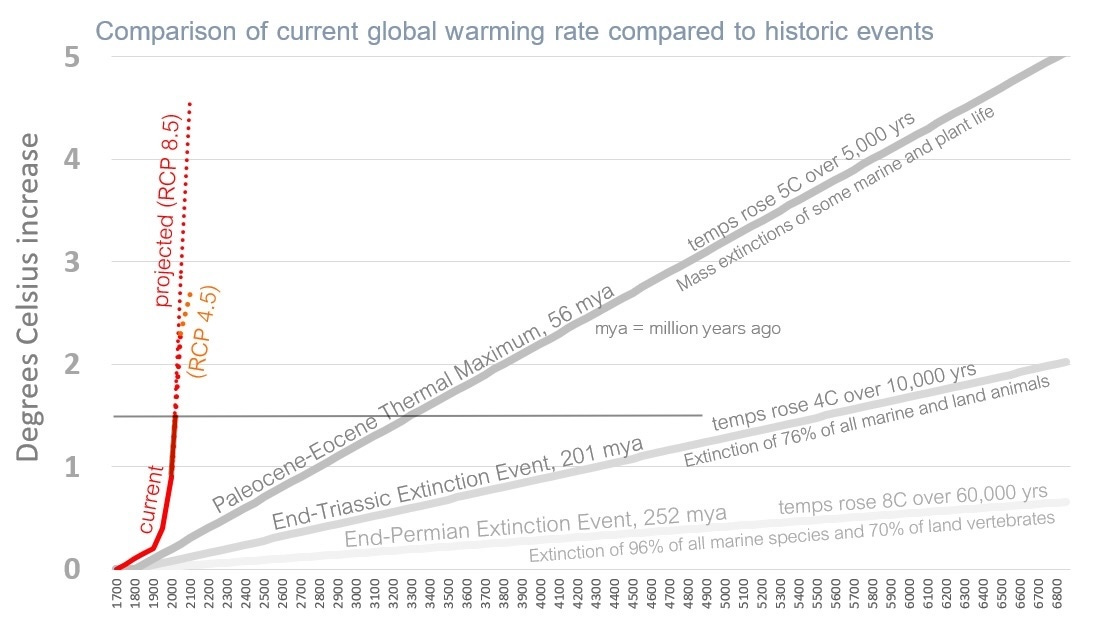

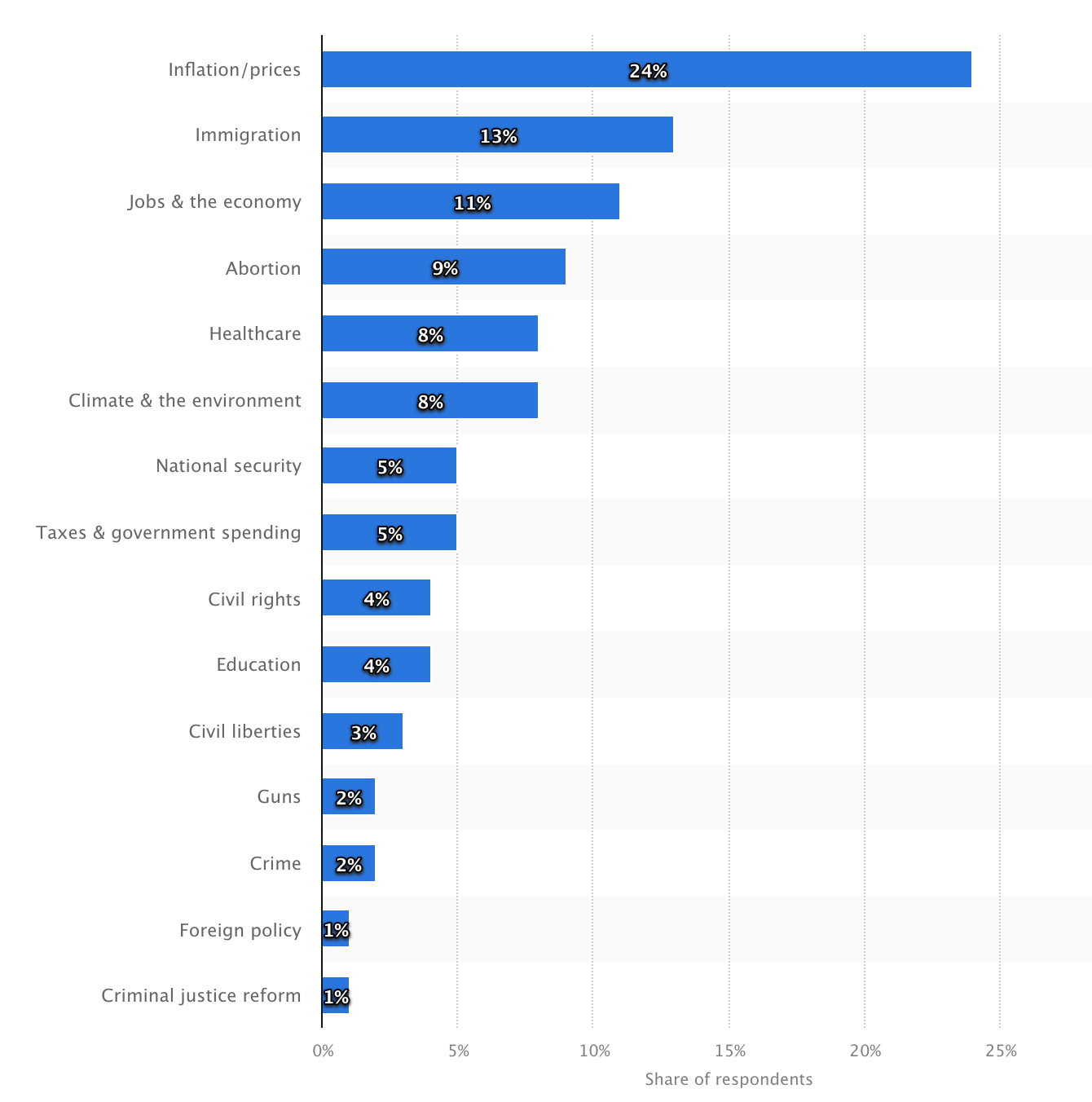
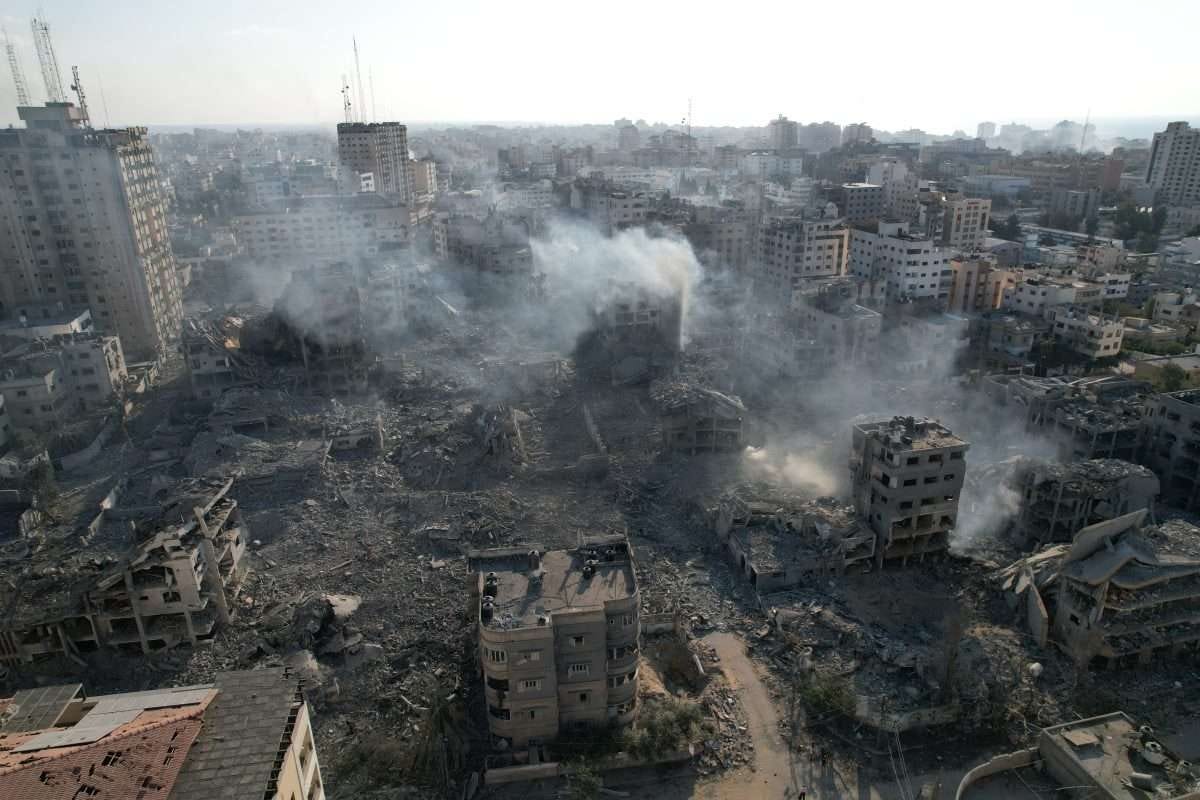
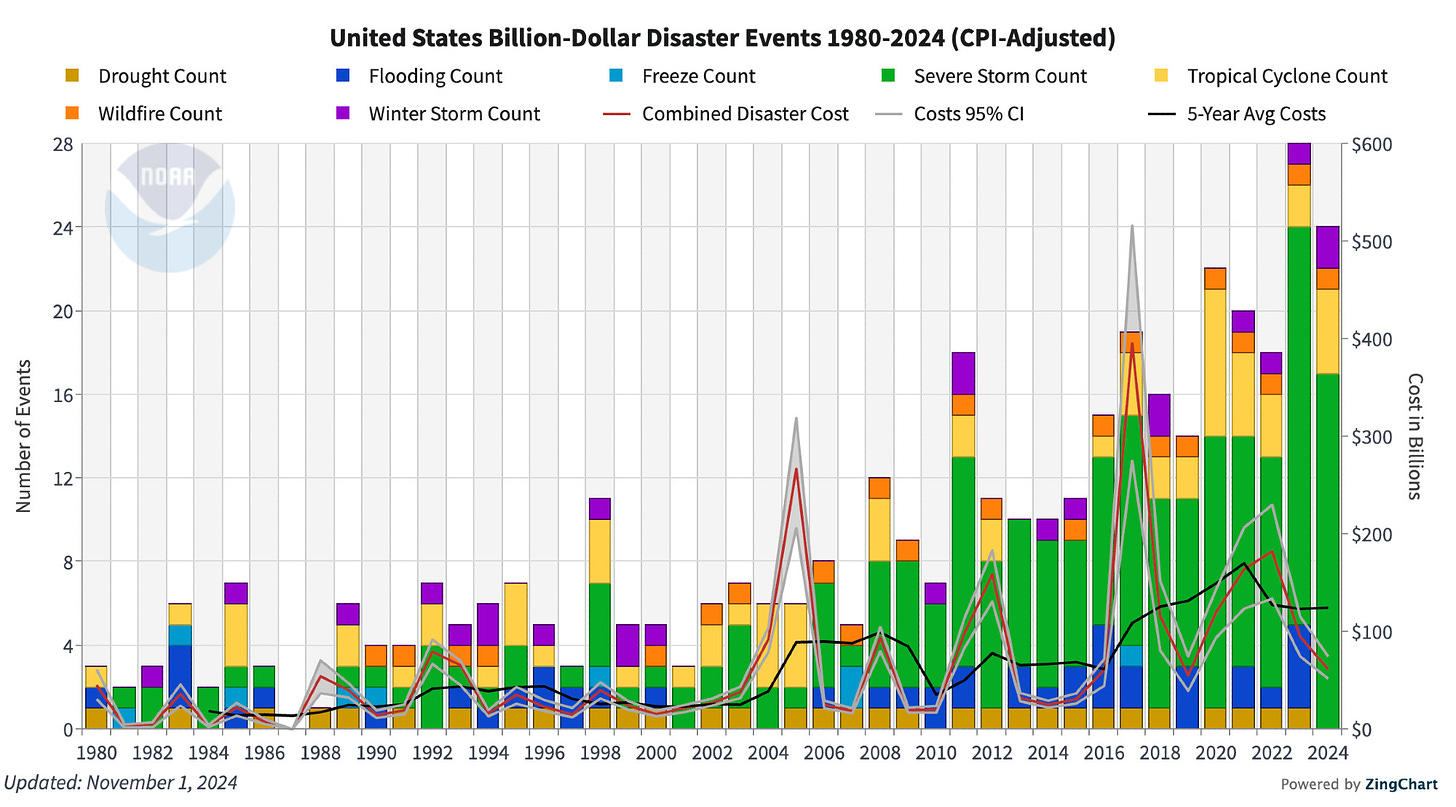

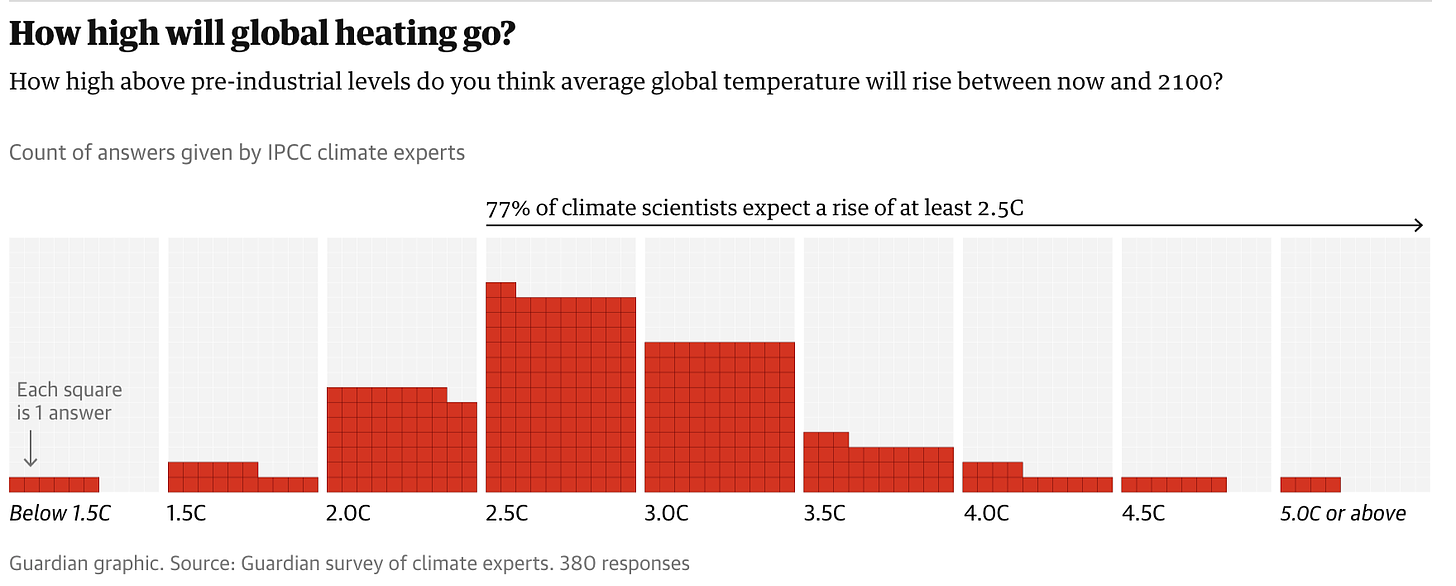
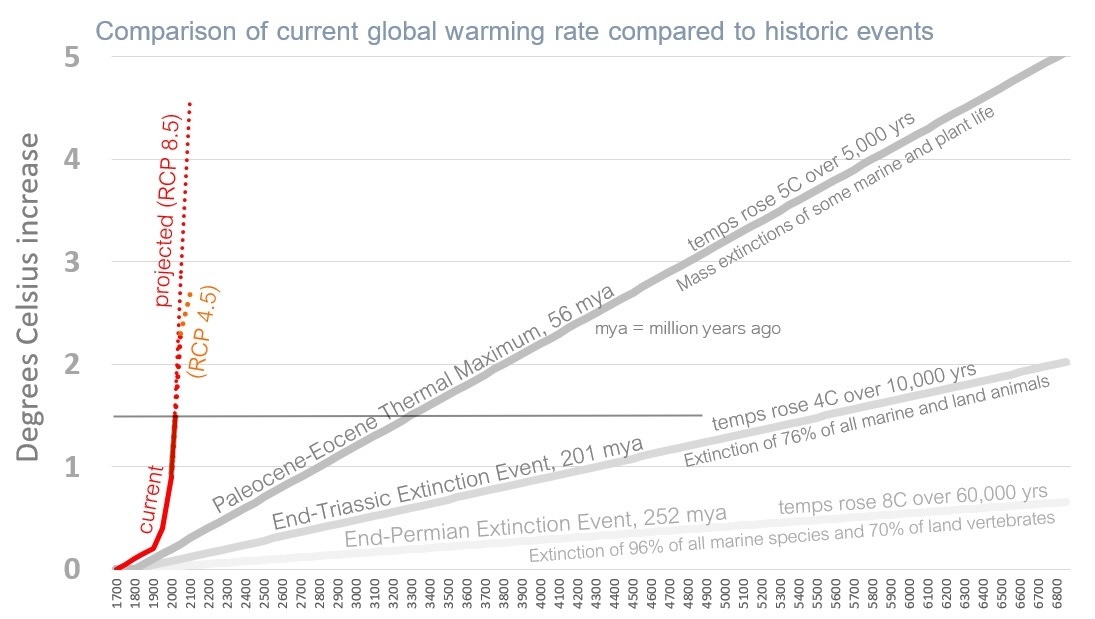
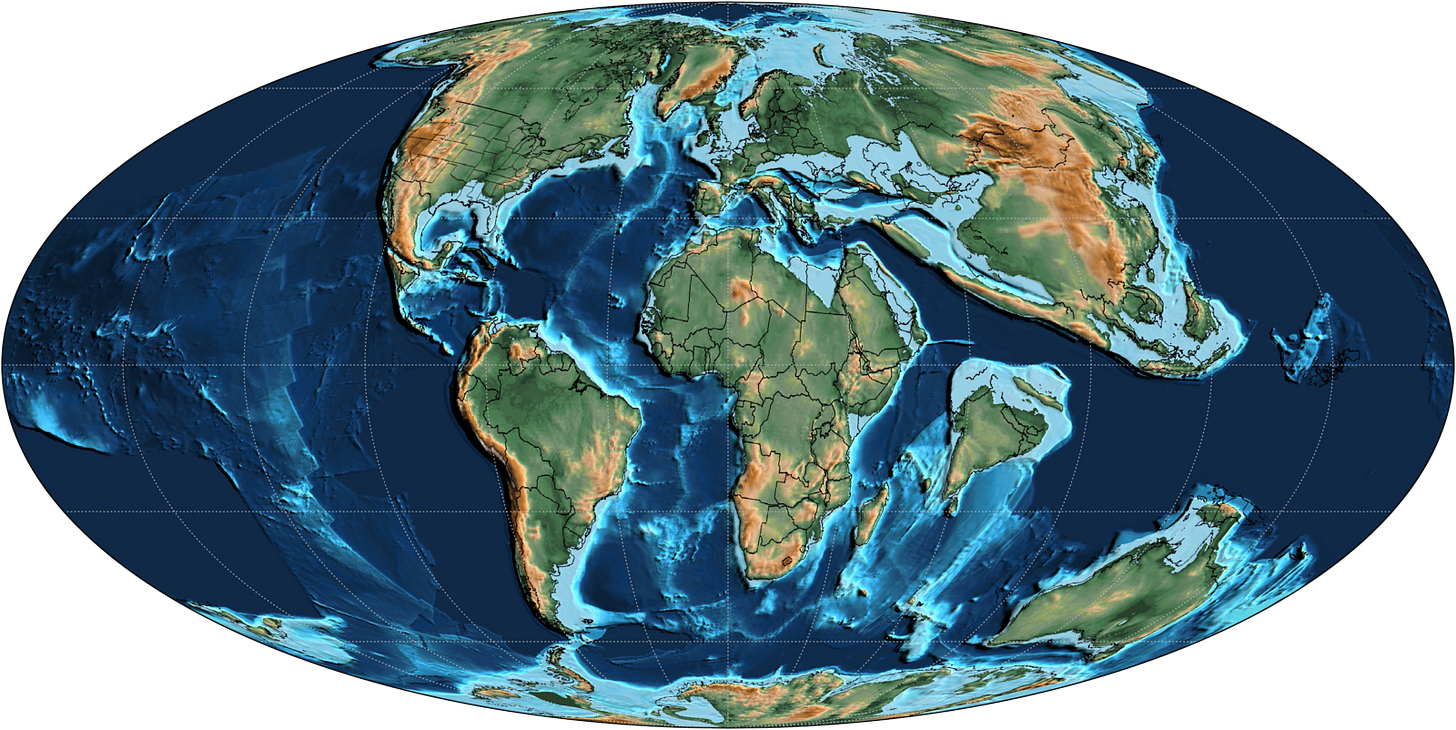



There's been more than 5 mass extinctions and I still do not know why main stream science still clings to 5. I think it might be that science advances one death at a time deal, because it's no secret. For example:
*Newly discovered mass extinction event triggered the dawn of the dinosaurs*
Published: September 16, 2020
.
"Huge volcanic eruptions 233 million years ago pumped carbon dioxide, methane and water vapour into the atmosphere. This series of violent explosions, on what we now know as the west coast of Canada, led to massive global warming. Our new research has revealed that this was a planet-changing mass extinction event that killed off many of the dominant tetrapods and heralded the dawn of the dinosaurs."
https://theconversation.com/newly-discovered-mass-extinction-event-triggered-the-dawn-of-the-dinosaurs-146248
This was published 4 years ago, yet I still here scientists say 5 mass extinctions have occurred.
That first paragraph should look familiar because it's the type(hothouse) of most mass extinctions and many lesser extinctions and loading the atmosphere with increasing amounts of greenhouse gasses it's what the humans are currently doing. Volcanism vs a rapacious and clever ape digging up and burning the carbon makes no big difference. The physics and chemistry and effect of the climate are basically the same.
"pumped carbon dioxide, methane and water vapour into the atmosphere."
Hothouse extinctions via volcanism (volcanic traps) puking out greenhouse gasses are the norm on this planet. Some scientists are still debating whether volcanism from the Deccan traps contributed to the extinction of the dinosaurs. It's a tough sell to a public that has 100 cartoon images of a big dinosaur looking up as a big asteroid with a flaming tail comes crashing down to earth embedded in their brains. I've witnessed a number of guys lose their shit arguing that volcanism played no part. Why so emotional ???weird.
There is another claimed mass extinction from 2021 that is significant, but does not appear to meet the strictest definition of mass extinction which I have heard is at least 75% of life on land and sea. This one is different in that it is not hot house and looks to be regional.
*Previously Unknown Mass Extinction Occurred 30 Million Years Ago in Africa and Arabia*
Oct 8, 2021
Nearly 63% of Afro-Arabian mammalian species went extinct approximately 30 million years ago (Oligocene epoch), after Earth’s climate shifted from swampy to icy.
"By gathering data on hundreds of fossils from multiple sites in Africa, they were able to build evolutionary trees for these groups, pinpointing when new lineages branched out and time-stamping each species’ first and last known appearances.
Their results show that all five mammal groups suffered huge losses around the Eocene-Oligocene boundary.
“It was a real reset button. After a few million years, these groups start popping up again in the fossil record, but with a new look,” Dr. de Vries said."
https://www.sci.news/paleontology/eocene-oligocene-mass-extinction-10148.html
Lastly, I came across this last year and was - WTF??
~
*19 'mass extinctions' had CO2 levels we're now veering toward, study warns*
The research looked at peaks in biodiversity loss and their relationship with atmospheric CO2, finding 50 events over the last 534 million years that can be considered mass extinctions.
Within a human lifetime, concentrations of CO2 in Earth's atmosphere could reach levels associated with 19 "mass extinctions" that have taken place in the last 534 million years, new research suggests.
By 2100, atmospheric carbon dioxide levels could rise to 800 parts per million by volume (ppmv) — almost double the concentration of roughly 421 ppmv recorded this year — if we fail to curb emissions from burning fossil fuels and converting land for agriculture.
That would be edging close to the average CO2 concentrations (870 ppmv) associated with huge crashes in marine biodiversity over the last 534 million years, according to a study published June 22 in the journal Earth's Future. These extinction events are preserved in the fossil record, allowing scientists to plot how biodiversity and atmospheric CO2 evolved throughout Earth's history.
"The relationship between carbon dioxide in the past and extinction in the past gives us a kind of yardstick that we can apply to the present," study author William Jackson Davis, a biologist and president of the non-profit Environmental Studies Institute in Santa Cruz, California, told Live Science.
*CO2 and extinction move in tandem*
In the new study, Davis found that CO2 concentrations oscillate with marine biodiversity in the fossil record.
"When carbon dioxide goes up, extinction goes up, and when carbon dioxide goes down, extinction goes down," he said. Davis then used this relationship to estimate biodiversity loss under current atmospheric conditions.
https://www.livescience.com/planet-earth/climate-change/19-mass-extinctions-had-co2-levels-were-now-veering-towards-study-warns
~
I'm not trying to put anyone down. I'm kinda confused because there appears to be multiple definitions for a 'Mass Extinction'. Moreover, the findings only makes the situation and human future all the more dire. Perhaps we should call the Carbon cycle the Extinction cycle?
Peace and thank you for your work.
Well done!!